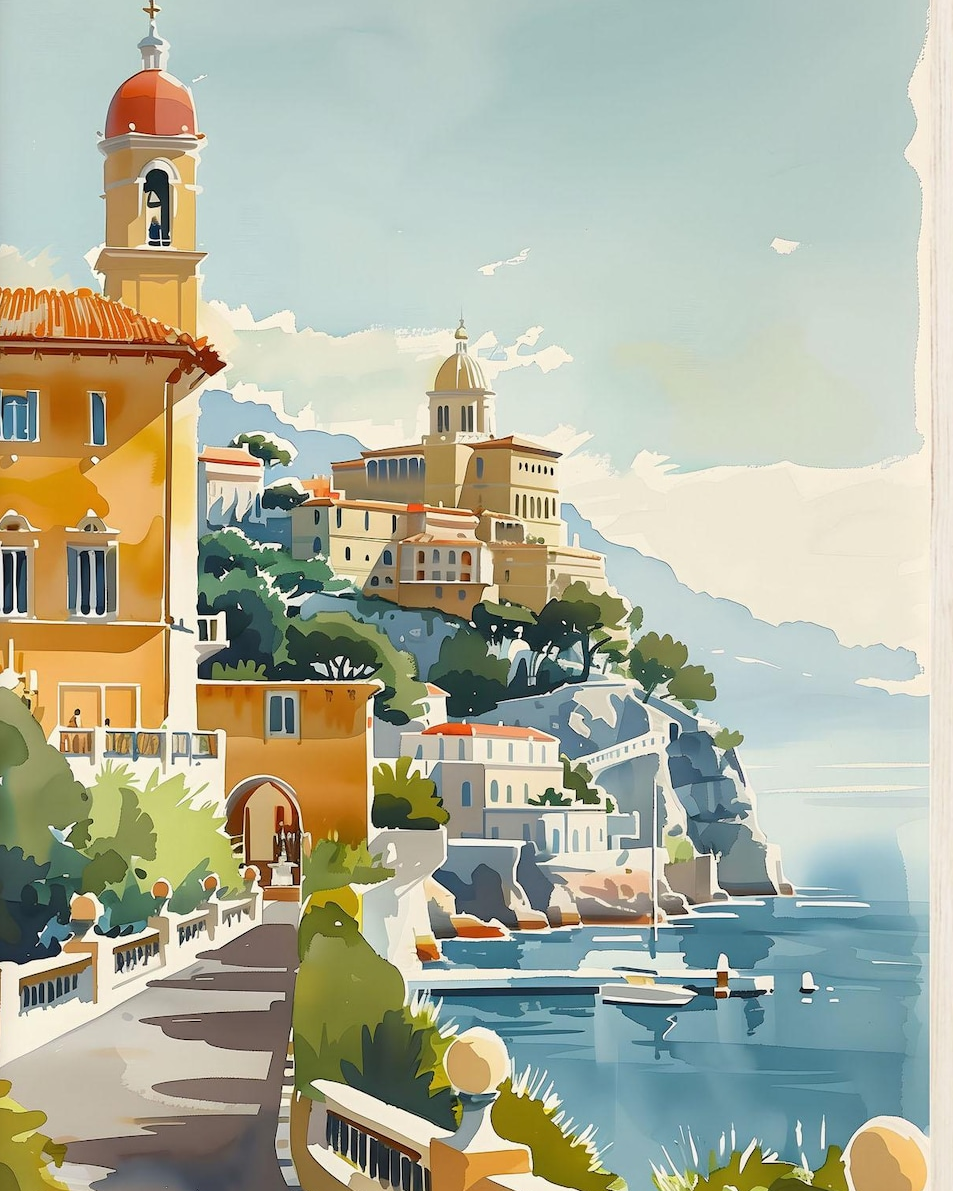
Monaco is one of the world’s smallest countries, and one of its most populated, by ratio. Situated on the French Riviera, a third of locals are millionaires, although most people who work here commute from France or Italy, both just 10 miles away.
Monaco is also a tax haven. Christian Aid estimates that around $160 billion is lost to help the poorest in society, when funds are moved away from countries, where people pay their fair share of tax.
In England, around £6 billion a year is lost due to tax evasion in England, way more than benefit fraud. If the government pulled its socks up to do something about this, it could fund walkable communities and the NHS.
Why Monaco Draws the Wealthy
Residents pay no personal income tax. For many high earners, that is the headline. There is no wealth tax for individuals either. The state funds services through value added tax, tourism, real estate, and state holdings. VAT is collected at rates aligned with France, with the standard rate at 20 percent.
Corporate taxes are low in practice. Most local firms that trade within Monaco pay no corporate income tax. If a company earns more than a quarter of its turnover outside the principality, corporate tax applies. The rate follows French rules, which in recent years have moved toward 25 percent. This mix keeps local services funded while keeping personal tax close to zero.
Privacy is part of the draw. Banking and company laws offer discretion, and the state is stable and safe. Residency rules are clear, and the government invests in infrastructure. It is no surprise that billionaires, sports stars, and owners of luxury brands choose to park themselves there.
The numbers are stark. Monaco has about 39,000 residents in just over two square kilometres. Reports from private wealth firms have estimated that around a third of residents are millionaires. The density of wealth is among the highest in the world. That concentration did not happen by chance.
After World War II, Monaco needed to revive its economy. It leaned into tourism, property, and finance. The no income tax policy, first set in the 19th century, became a modern selling point. The principality forged a customs union with France, which helped trade and VAT collection. Over time, racing, casinos, and luxury retail built the brand. The tax system kept the high earners coming.
The Rules to Become a Monaco Resident
Residency has a clear checklist. Applicants must prove they have a place to live in Monaco, either rented or owned. They must show sufficient income or wealth to support themselves. A clean criminal record is required, and authorities run background checks.
Banks in Monaco often ask for a significant deposit before opening an account for new residents. While the law does not fix a figure, in practice the sums can be large. Renting or buying property is also costly, given limited space and world‑leading prices. Applicants must spend most of the year in Monaco to keep residency. These hurdles make the club exclusive, by design and by cost.
How Businesses Benefit from Monaco’s Tax Perks
Monaco offers corporate perks that appeal to high margin sectors. There is no tax on dividends paid by Monaco firms, and individuals do not pay capital gains tax. Wealth managers, family offices, and luxury goods companies find this attractive. So do sports management and entertainment businesses.
Companies with mostly domestic turnover pay little in corporate tax, while those with international revenue face a rate pegged to France. Some firms make use of treaty networks elsewhere to reduce double taxation on cross‑border flows. The result is simple. Profits can face lighter tax in Monaco, while tax bills shift to other countries where sales or workers sit.
Issues with Monaco’s Tax Haven Status
The appeal of tax havens Monaco has built is clear. The problems with Monaco taxes are also clear once you look past the yachts.
First, there is revenue loss for other countries. When high earners move income or assets into low tax zones, home countries collect less. The Tax Justice Network estimates governments lose hundreds of billions each year to tax abuse worldwide. Research by economists such as Gabriel Zucman suggests around a tenth of global GDP is held offshore. Monaco is a small part of that picture, yet it signals a route many copy.
Second, inequality widens. The very rich can move and pay less. The average worker cannot. When the rich pay less, others pick up the bill through higher taxes or weaker services. This gap feeds mistrust and social strain.
Third, there are links to illicit finance. Low transparency and light oversight create risks. In the past, Monaco faced scrutiny from international watchdogs. It has taken steps to clean up, such as joining the Common Reporting Standard and working with the Financial Action Task Force.
Secrecy compounds the problem. Complex company structures, nominee directors, and private banking can hide who owns what. That makes it harder for tax authorities to track income, and for police to follow dirty money. Most residents are law‑abiding. The system, however, can be misused, and the costs spill across borders.
How Tax Evasion Hurts Everyday Economies
Think of a family where one person skips chores but still eats dinner. Others work more, or dinner gets smaller. Tax evasion and aggressive avoidance work like that. When the richest shift income to tax havens, the tax base at home shrinks.
Global losses from tax abuse are estimated in the hundreds of billions each year. Monaco’s slice is modest compared to giant financial centres, yet the signal is powerful. Revenue gaps lead to cuts or delays in hospitals, schools, and transport. Or governments raise VAT and payroll taxes that hit workers and small firms. The public pays, one way or another.
Risks of Crime and Corruption in Tax Havens
Where oversight is low, dirty money tries to flow. Funds from corruption, fraud, or drugs seek safe, private homes. Risk increases when ownership records are opaque and checks are weak.
Monaco has improved its controls over the past two decades. It participates in international information exchange and has tightened anti‑money laundering rules. Reviews by bodies such as MONEYVAL have recognised progress while urging stronger enforcement and better data on who owns companies and trusts. The picture is mixed. Most activity is legal, yet gaps still attract those who want to hide funds.
The Inequality Gap Monaco Helps Create
Only the wealthy can buy into Monaco’s model. High entry costs and property prices keep the door shut for most people. That deepens a divide. In Europe, middle classes face rising living costs and tax pressure. In Monaco, a large share of residents are millionaires in a state with no income tax. The contrast is stark, and it feeds a sense that rules are different for those at the top.
Global Impacts and Fairer Taxes
Tax havens reshape the tax map. When money shifts to low tax hubs, other states face pressure to cut rates or lose revenue. This sparks a race to the bottom that hurts public services and trust.
There is progress. The OECD’s Base Erosion and Profit Shifting project aims to close loopholes used by multinationals. The global minimum tax deal seeks a 15 percent floor for large companies. The EU has pushed for more transparency on beneficial ownership and has forced public country by country reporting for big firms. These steps do not end the problem, but they change the calculus.
Monaco has moved with the tide. It exchanges financial account data with many countries and has strengthened anti‑money laundering oversight. More can be done, such as better information on who owns companies and faster access for authorities.
What can readers do? Support fair tax reforms in your country. Back public registers of beneficial ownership. Ask lawmakers to resource tax authorities so they can enforce existing rules. Choose banks and firms with strong transparency policies. Small steps add up when many people act.
Can we fix this? Yes, with steady rules, patient enforcement, and clear data. The aim is not to punish success, but to make sure wealth contributes a fair share wherever it is earned.
International Efforts to Challenge Tax Havens
Several international tools now curb secrecy. The Common Reporting Standard allows automatic exchange of financial account information between tax authorities. Monaco has joined CRS, which makes it harder to hide bank deposits offshore.
Anti‑money laundering rules require banks and advisers to know their clients and report suspicious activity. Sanctions for non‑compliance have grown. The global minimum tax for large groups reduces the benefit of parking profits in low tax places. Gaps remain, such as inconsistent beneficial ownership records and limited coverage of trusts. Even so, transparency is rising, and the cost of secrecy is going up.
Surprisingly Simple Lifestyles
Despite being known for its luxury lifestyle, Monaca residents live surprisingly simple lives, that we could learn from.
Monaco is one of the Safest Places on Earth
There is one policeman or policewoman per 73 residents, plus many police stations and special police boats. Police in Monaco are recruited from France, and train for two years.
Compare that with England, when often police stations are shut due to lack of funding, and it’s difficult to find police when you need them. We couldn’t find an exact count for England, but it’s likely similar to the USA where you have around 2 police officers per 1000 people.
Residents Are Not Allowed Inside Casinos
Despite Monte Carlo being the most famous casino in the world, there is a law that local people can’t gamble, due to Catholic beliefs (and if they lost everything, they could not afford to live there!)
Monaco Has the World’s Longest Life Expectancy
People in Monaco live an average of 85.8 years, not surprising considering the quality of life. Even so, the average age of people is 44. But everyone eats well and has access to super health care.
You Can Walk Everywhere
It takes just one hour to walk across the entire country. However, despite England being much bigger, it’s food for thought as we could make each town or city walkable, often these days you have to drive most places.
Monaco Does Not ‘buy’ Animals from Zoos
Monaco’s zoo has had welfare issues in the past (Born Free Foundation persuaded Prince Albert to release enclosed leopards to a sanctuary). Now all animals here are rescued from being abandoned/seized by circuses.
Yet English zoos still ‘buy’ animals. Longleat safari park once admitted that due to over-breeding, some lion cubs were killed. Learn how to conserve endangered species, without zoos.






